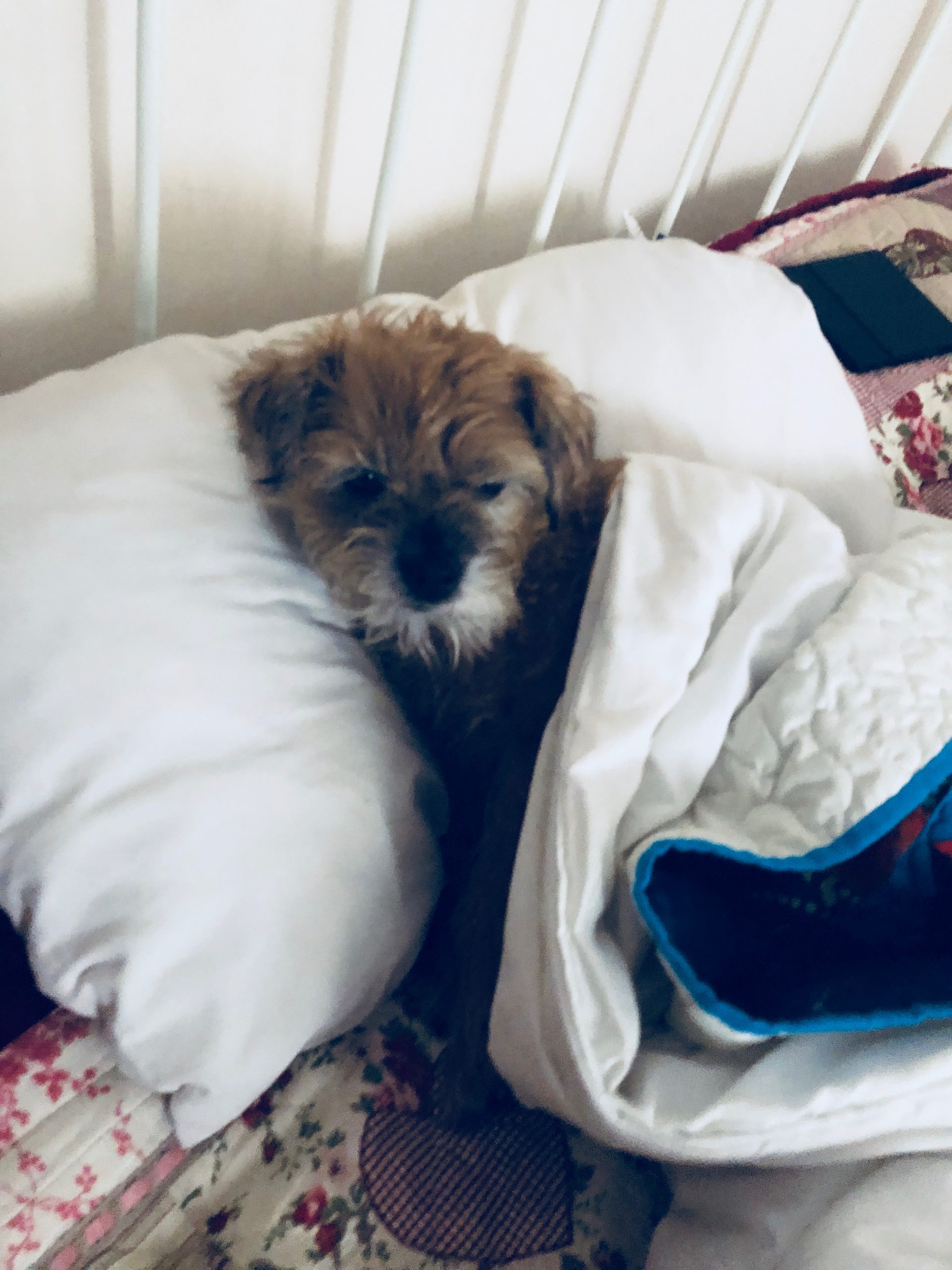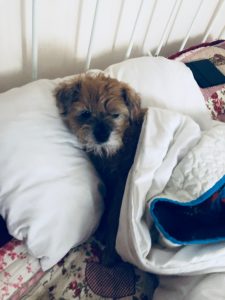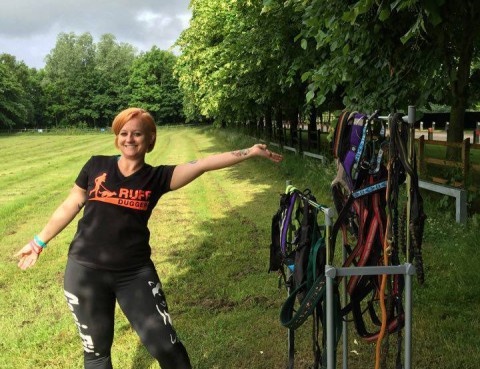[column width=”1/1″ last=”true” title=”Kennel cough” title_type=”single” animation=”none” implicit=”true”]
Coughs and sneezes spread diseases
It is that time of the year again. Coughs and sneezes spread diseases, and unfortunately our dogs are not exempt. Whilst kennel cough is on the go all year round, it is particularly rife at this time of year.
What is it?
Kennel cough is a respiratory infection affecting dogs. It is caused by a wide range of bacteria and viruses. The main symptom is a harsh, hacking cough. Other symptoms can include runny nose, sneezing, and lethargy. Some dogs can be quite normal with it, some may present as under the weather.
Kennel cough is extremely infectious (i.e. it spreads through the air/through the environment, direct contact is not needed). The incubation period is between two and fourteen days from exposure and dogs are infectious during this period. Dogs can be infectious before they show symptoms so be very mindful of any possible exposure.
It is just a cough – what is the problem?
Kennel cough can be extremely serious to young, old and infirm dogs, and can lead to illnesses such as pneumonia. It will spread round a class or household like wildfire.
Kennel cough can also scupper race hopes – imagine having spent months of training and organising for a race, and having spent a huge amount of money on it, only to have the opportunity wiped by kennel cough, either through having a dog with the illness or having had contact with a dog with kennel cough, thus rendering a period of home quarantine necessary. Don’t be the dude who ruins dreams by taking your dog out with kennel cough. It just isn’t cool.
At Cani-Fit, we have people who attend classes in various locations so there is also the risk of passing the illness to other areas. Again, not cool to bring kennel cough to the party.
Avoiding kennel cough
Kennel cough is extremely difficult to avoid as it can persist in the environment. That means your dog could pick it up while out on a walk or in any public place. Your dog is however most likely to catch it from a known or local dog with the illness so be aware of the signs, be vigilant and avoid contact with any dog with the illness or who may have it.
Vaccines are available but these are not 100% effective and a dog can still get the illness after having the vaccine.
One way to minimise the risk is to avoid allowing your dog to drink from communal water bowls at races, events, training classes, etc. These are hot spots for picking up the bacteria that cause kennel cough.
If your dog has kennel cough
If your dog has kennel cough or you suspect that they might have, consult your vet. Some vets will prefer to speak with you over the phone, instead of you taking your dog into a waiting room that might also be occupied by young, old or ill dogs. Check with your own vet practice for procedure.
Keep your dog home, warm and comfortable. Monitor them. If their condition worsens, changes or takes a long time to resolve, consult your vet.
Don’t spread it
Don’t take any chances if you suspect that your dog has been exposed to or may have kennel cough. Be honest, sensible, and keep others safe.
Don’t arrange play dates or attend activities, classes or events. As someone who once had to shut down their dog training club for three weeks and scrub a church from top to bottom due to a kennel cough outbreak, I can assure you that the organiser will not thank you for it!
Dogs should not return to class, events or activities until two weeks after the last cough. Check out our Kennel Cough policy for classes and events here.
Don’t risk it
When you are active in the dog sport world, it can feel like your social life has ground to a halt when your dog has kennel cough. It sucks to miss things. I had to miss the first Ruff Dugger I’d entered with Baxter as he came down with it. But it soon passes and it just isn’t worth the risk of spreading it.
So if your dog does get it, stay home, keep them comfortable, and you and your dog will be back to it in no time when they are fighting fit and cough free.
Author bio: Nicola Cameron is a Cani-Fit Leader and Cani-Fit’s Business Manager. She teaches our Cani-Core classes. Nicola trains and competes with her two border terriers, Bonnie and Baxter, in Canicross and Heelwork to Music. She co-runs a local dog training club and teaches several trick training and pet obedience classes per week, from intake to advanced level.
[/column]



